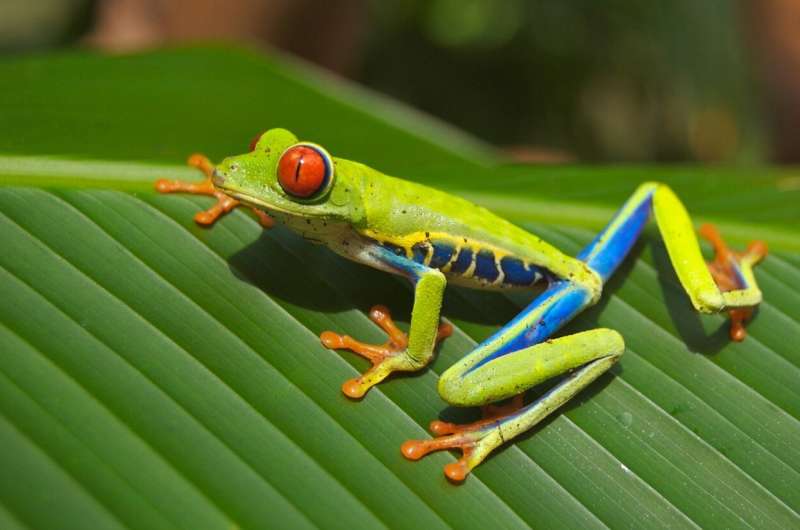Native frogs had hard year, faced fires and harsh ecology

The 2019/20 Australian bushfires killed over 1 billion animals. Our frog species used their secret super powers to survive, but they still face extinction.
It's not easy being green, especially this year. Like many native animals, frogs were hit hard by the Australian bushfires of summer 2019/20, so researchers and citizen scientists are banding together to conserve our native frogs.
Dr. Jodi Rowley is a herpetologist at the Australian Museum. A herpetologist studies reptiles, amphibians and all manner of slimy, scaly critters.
For Jodi, frogs are a ribbiting topic. She helps run the FrogID app, which lets you take recordings of frog calls using your phone. These recordings are sent to a team of experts at the Australian Museum who identify the calling frogs.
FrogID is helping Jodi track how frog populations have changed after the bushfires, which engulfed 17 million hectares and killed over 1 billion animals.
Fire-proof frogs
Amphibians like frogs need plenty of clean water and can't travel far from their homes, so it makes sense that they would be especially affected by the fires.
But Jodi thinks that might not be the case.
"It sounds counter-intuitive, but a lot of frogs have adaptations for drought. Those adaptations might save them during fires," says Jodi.
"A lot of frogs bury themselves underground. It only takes 5–10cm of soil to protect themselves from extreme heat."
Ribbit recordings
FrogID began 2 years before the bushfires and managed to record 66 different frog species.
Three months after the fires, only 45 frog species were recorded. But when Jodi compared the number of regular calls happening in those 3 months to other years, the numbers were the same.
This means that all the frog species that call at that time of year were still there. It's possible no recorded species were wiped out by the fires, which is great news.
Frogs might still croak
Frogs didn't come away unscathed though. Jodi says it's likely many frogs died and some vulnerable species might be pushed to the brink of extinction.
"There might be longer-term, subtle impacts too. The genetic diversity of these populations might be affected. And our rainforest frogs aren't adapted to fire, so there are some species we're really worried about," says Jodi.
Surviving frogs also have fewer places to hide now, with so much vegetation burnt. This makes them vulnerable to foxes and cats looking for an easy snack.
"Of our 241 native species, we've already lost four and another 30 are threatened," says Jodi.
"One of our biggest obstacles for conservation is a lack of knowledge. We need more information about their habitats and behavior if we want to save them," says Jodi.
"By recording their calls, we can get heaps of information quickly."
More information: There are research and conservation projects to protect these species, but you can help out too. Download the FrogID app and have a go at recording your local frogs, especially if you live in a remote area. It's an easy and fun way to become a citizen scientist!
Provided by Particle
This article first appeared on Particle, a science news website based at Scitech, Perth, Australia. Read the original article.














